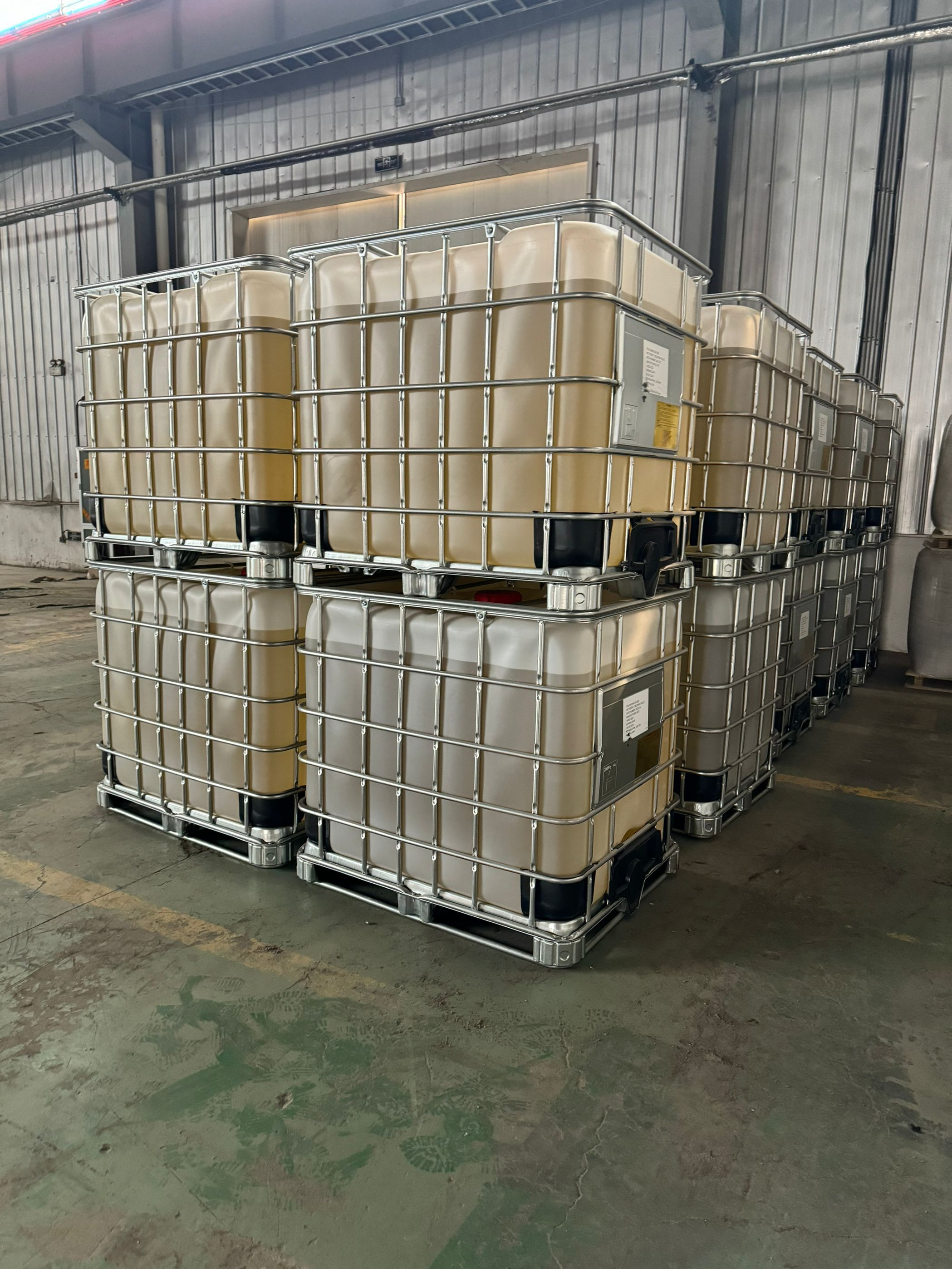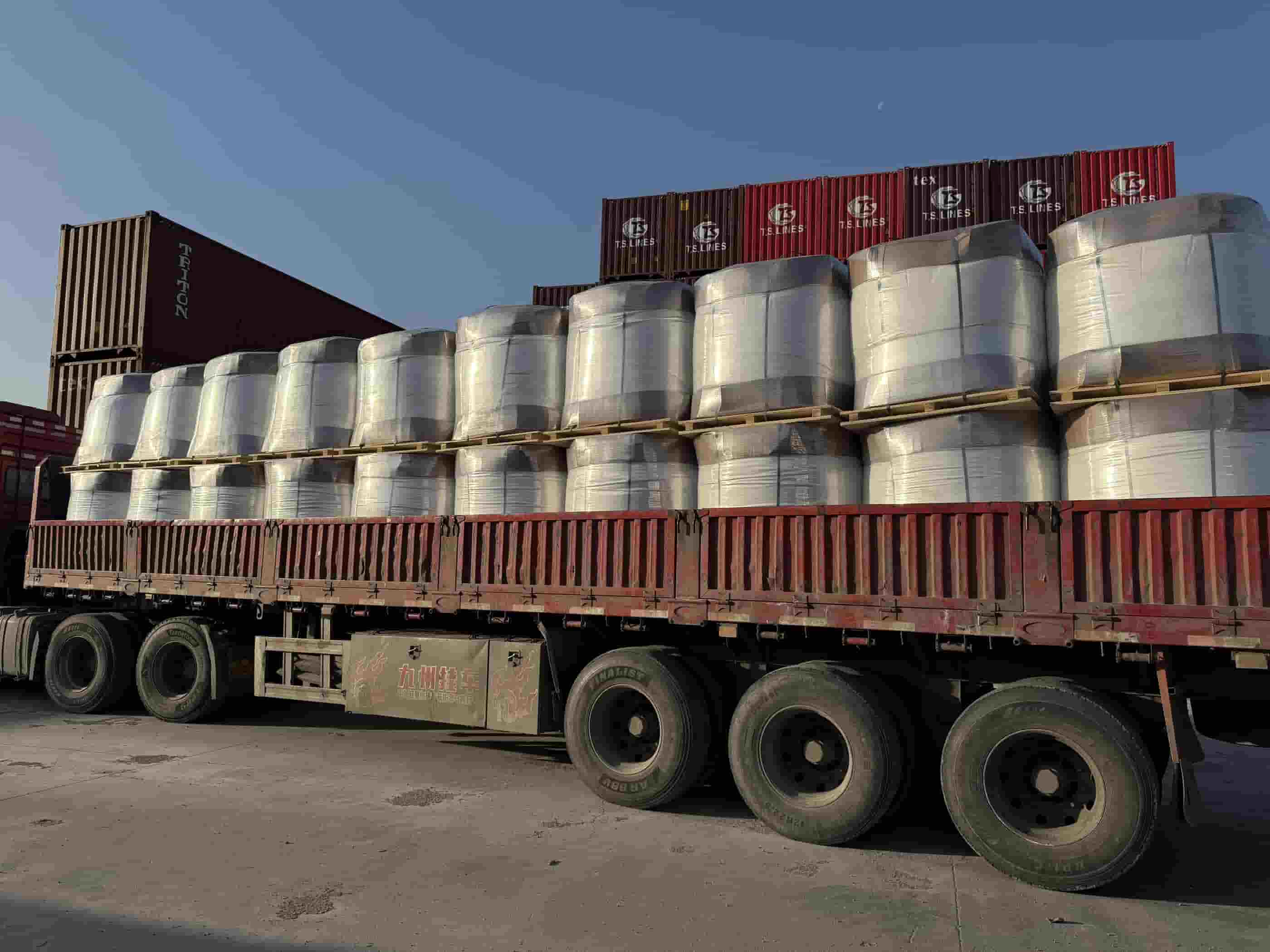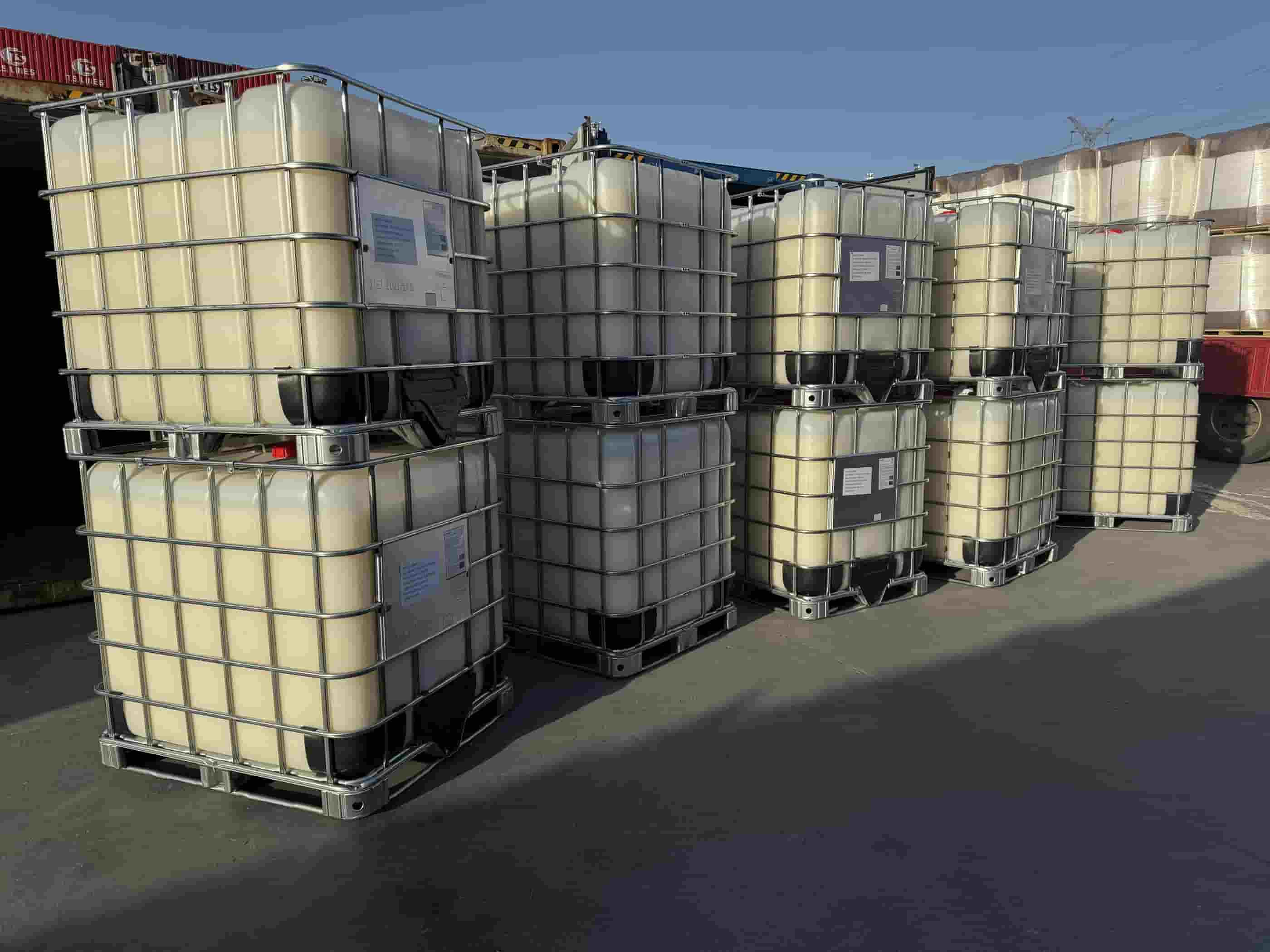FL4520 is a kind of polaycrylamide with 50% solid and 20-60vicosity.mainly used for water tretment ,paper and pulp ,textile, oild and gas and other applications ,chinafloc FL series can repalce of it with good performanace.
Polydadmac(50%solid content) of FL4520 can be replaced by asiafloc FL series
Material
- polydadmac
Color
- light yellow
Application
- water treatment ,mineral processing ,testile
Certificate
- ISO9001 ,ISO14001
Place of Origin
- China
Other Names
- polydadmac
Brand Name
- asiafloc
Usage
- water treatment ,mineral processing ,textile ,oil and gas
Polydadmac(50%solid content) of FL4520 can be replaced by asiafloc FL series
FL4520 is a kind of polaycrylamide with 50% solid and 20-60vicosity.mainly used for water tretment ,paper and pulp ,textile, oild and gas and other applications ,chinafloc FL series can repalce of it with good performanace.
Polydiallyldimethylammonium chloride (polydadmac) is a cationic polymer with a wide range of applications due to its excellent ability to flocculate, coagulate, and bind with negatively charged particles. In its 50% solid form, polydadmac is concentrated, making it highly effective for industrial processes where a stronger or more efficient polymer is required. Its main applications span across industries such as water treatment, paper and pulp manufacturing, textiles, oil and gas, cosmetics, and more. Below is a comprehensive discussion of the primary uses of polydadmac (50% solid), emphasizing its versatility and significance in various sectors.
1. Water and Wastewater Treatment
One of the most significant and common applications of polydadmac (50% solid) is in water and wastewater treatment. Its cationic nature allows it to interact effectively with negatively charged particles, such as dirt, suspended solids, and organic materials, helping to remove impurities from water. Polydadmac’s role in both municipal and industrial water treatment is crucial in improving water quality for drinking, industrial processes, and discharge to the environment.
Coagulation and Flocculation: Polydadmac is widely used as a coagulant and flocculant in water treatment processes. When added to water, the polymer’s positive charge neutralizes the negative charges of suspended particles, causing them to agglomerate into larger flocs. These flocs can then be removed by processes such as sedimentation or filtration. Polydadmac is particularly effective for removing suspended solids, organic contaminants, and colloidal particles, which are difficult to treat with traditional methods.
Drinking Water Treatment: In municipal water purification, polydadmac is used to clarify raw water by removing turbidity and organic matter. It is effective in treating surface water sources such as lakes and rivers, which may contain algae, silt, and other contaminants. The polymer’s flocculation properties enhance the removal of these contaminants, helping to produce clear and safe drinking water.
Industrial Wastewater Treatment: In industries such as textiles, paper mills, food processing, and petrochemicals, wastewater is often laden with high concentrations of oils, dyes, and solids. Polydadmac is used to treat such wastewater by removing suspended solids and oils. Its ability to aggregate particles into large, easily removed flocs significantly enhances the efficiency of industrial wastewater treatment processes.
Sludge Conditioning: In municipal and industrial wastewater treatment, polydadmac can be used to condition sludge, helping to improve the efficiency of dewatering processes. The polymer promotes the formation of larger, more cohesive flocs that are easier to separate from the water. This reduces the volume of sludge and improves the performance of dewatering equipment such as centrifuges, belt presses, and filter presses.
Removal of Heavy Metals: Polydadmac can also aid in the removal of heavy metals from wastewater, particularly in industries where metals like copper, nickel, and zinc are present. The polymer can form complexes with metal ions, allowing them to be effectively removed from the water.
2. Paper and Pulp Industry
In the paper and pulp industry, polydadmac (50% solid) is an important chemical used to improve various stages of paper production, from the wet-end to the final product. Its ability to improve retention, enhance strength properties, and help in flocculation makes it invaluable in papermaking.
Retention Aid: One of the primary applications of polydadmac in papermaking is as a retention aid. During the paper production process, fibers and filler materials (such as clay, calcium carbonate, and starch) must be retained in the pulp suspension. Polydadmac helps to improve the retention of these materials by forming bonds with both the fibers and the fillers, reducing the loss of fine materials during the papermaking process. This results in improved yield and efficiency in paper manufacturing.
Strength Agent: Polydadmac also acts as a strength agent, particularly in improving the dry and wet strength of paper. When added to the papermaking process, it enhances the bonding between cellulose fibers, increasing the overall strength of the paper. This is crucial for producing paper products that require higher durability, such as packaging materials, newspapers, and tissues.
Flocculation of Pulp Suspensions: In the paper industry, polydadmac is used as a flocculant to remove impurities from the pulp. It helps to flocculate and agglomerate fine particles, making them easier to remove during the papermaking process. This improves the quality of the final paper product and enhances the clarity of the water used in production.
Deinking and Recycling: Polydadmac is also used in the deinking process for recycled paper. In the recycling of used paper, ink particles must be removed to improve the quality of the final product. Polydadmac’s flocculation properties help in agglomerating the ink particles, making them easier to separate from the pulp. This is essential in producing high-quality recycled paper, which can be reused in new paper products.
3. Textile Industry
In the textile industry, polydadmac (50% solid) is used for various purposes, including dyeing, finishing, and wastewater treatment. Its cationic nature allows it to interact with negatively charged materials, making it an effective agent in textile manufacturing processes.
Flocculation of Dye Effluents: One of the most important uses of polydadmac in textiles is in the treatment of dye effluents. Textile dyeing operations often generate wastewater that contains high concentrations of dyes and other chemicals. Polydadmac is used as a flocculant to remove these contaminants by aggregating the dye molecules into larger flocs, which can then be removed from the wastewater. This helps reduce the environmental impact of textile manufacturing by ensuring that the effluents meet regulatory discharge standards.
Antimicrobial Properties: Polydadmac’s cationic nature imparts antimicrobial properties to textiles, making it useful in producing fabrics with antibacterial and antifungal characteristics. These textiles are particularly important in medical and health-related applications, such as hospital gowns, surgical drapes, and sportswear. The antimicrobial action helps prevent the growth of harmful microorganisms, extending the lifespan of fabrics and improving hygiene.
Textile Dyeing and Fixation: Polydadmac is used to improve the fixation of dyes onto fibers in textile dyeing. Its positive charge enables it to bond with negatively charged dye molecules, enhancing the uptake of dyes by the fibers. This results in improved color fastness and better dye retention, which is crucial for producing high-quality fabrics with consistent color and appearance.
Fabric Softening and Conditioning: Polydadmac is also used in textile finishing agents to improve the softness and texture of fabrics. By reducing static and enhancing smoothness, polydadmac helps make fabrics more comfortable to wear and easier to handle during manufacturing.
4. Oil and Gas Industry
Polydadmac (50% solid) finds a wide range of applications in the oil and gas industry, particularly in drilling operations, wastewater treatment, and enhanced oil recovery. Its ability to work as a flocculant and emulsifier makes it an essential component in various oilfield operations.
Drilling Fluids: In the oil and gas drilling process, polydadmac is used as a component of drilling fluids. It helps stabilize the borehole and improve the performance of drilling muds by reducing friction, enhancing lubrication, and facilitating the removal of cuttings from the wellbore. Polydadmac’s ability to flocculate fine particles in the drilling fluid also helps prevent clogging and improves the overall efficiency of drilling operations.
Emulsifiers for Oil-Water Separation: Polydadmac can be used as an emulsifier to help separate oil from water in oilfield applications. It enhances the stability of oil-water emulsions, allowing for better separation and easier handling of produced water. This is particularly useful in operations where oil and water are mixed and need to be separated efficiently.
Produced Water Treatment: The oil and gas industry generates large volumes of produced water, which contains a mixture of oil, salts, and suspended solids. Polydadmac is used to treat this produced water by flocculating the solids and facilitating their removal. The polymer helps improve the quality of produced water, enabling it to be either reused in the field or treated for safe disposal.
Enhanced Oil Recovery (EOR): Polydadmac can also be used in enhanced oil recovery techniques, where it improves the flow of oil in reservoirs. By modifying the rheological properties of injected fluids and stabilizing emulsions, polydadmac can help increase the efficiency of oil recovery operations.





551.jpg)
